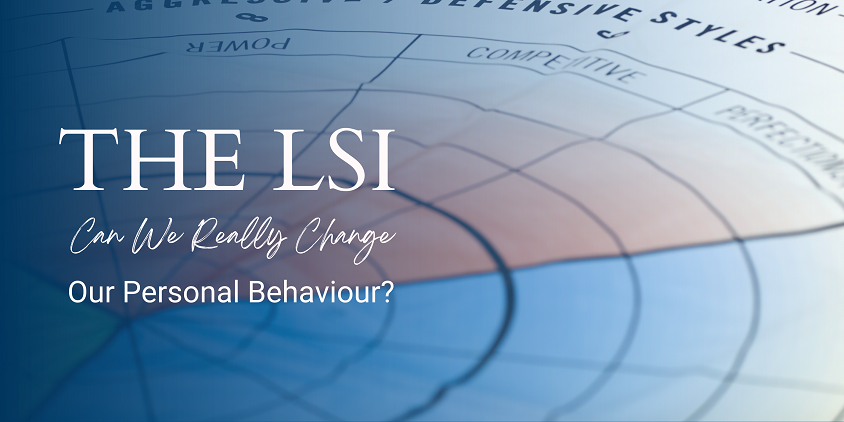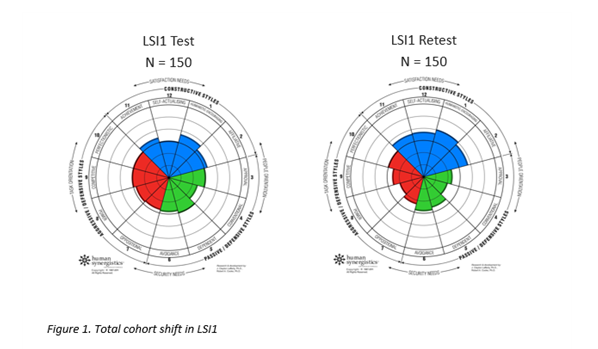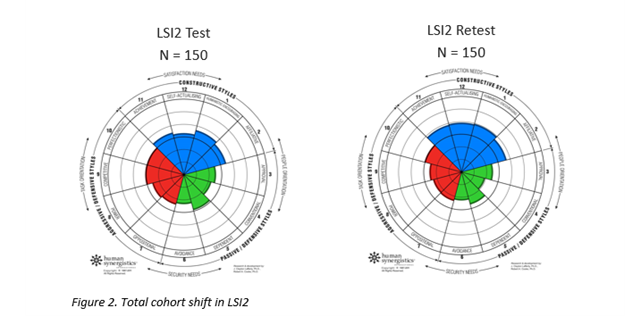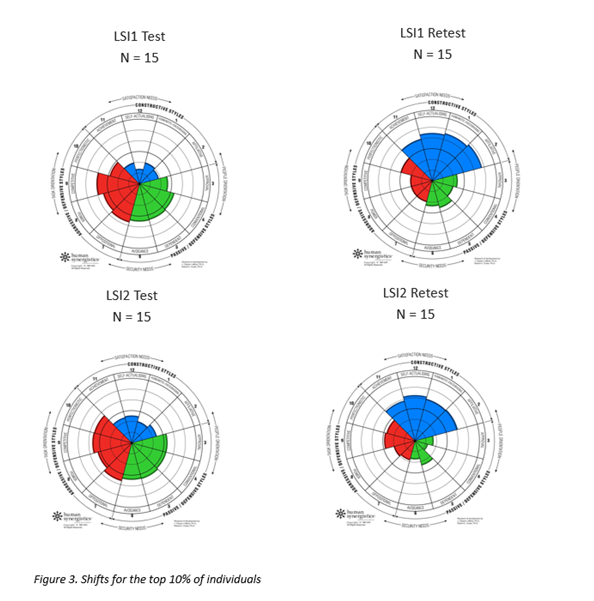
As the new year unfolds, so does the opportunity to look back at the year that has been with a fresh set of eyes. In this article we look at the concept of individuals reflecting back on 2023 and considering potential changes for the future.
We speak with Human Synergistics Analytics Leader, Andrew Barbour about a dataset study across one organisation over two subsequent culture measures.
"At the time I focused on the impact this has for organisations in terms of turnover but it also got me thinking about how much it is possible for an individual to transform themselves", explains Andrew (or Barbs as he is affectionately known in the office).
Human Synergistics, accesses and utilises a valuable resource of quantitative data on changes in personal cognition and actions. This information has been gathered through the use of the Life Styles Inventory (LSI)™, a 360 assessment tool specifically designed to evaluate these elements. The goal is to gain a better understanding of potential transformations and identify key contributing factors.
"Rather than explore this through our full dataset I decided to focus in on a cohort of 150 leaders within one organisation, comparing their initial LSI measure with a retest to explore how things changed following the initial feedback and coaching. Typically, the retest occurred 2 years after the initial LSI," says Andrew.
The reasoning for concentrating on a single organisation stems from the assumption that all individuals have undergone the LSI under comparable circumstances (such as a workshop setting and a consistent number of coaching sessions). Rather than incorporating this variable into the analysis, steps were taken to regulate it, since data on what support the individuals in the dataset received around their initial LSI is not available.
"If we start with the cohort as a whole we can see that the median profile has shifted for thinking (Figure 1), with an average improvement of 10.9 percentile points on the constructive styles and 9.9 points on the defensive styles. The median behavioural profile (Figure 2) also shifted with an improvement of 9.5 points on the constructive styles and 4.6 points on the defensives," he explains.


The study indicates that an individual can expect a moderate overall improvement of approximately 10 percentile points across the 12 styles. However, it is worth noting that they may experience larger advancements in certain styles where they have directed their attention, while also encountering smaller or no improvements in other styles.
"Where things get interesting though is when we look at the individuals in the cohort who managed to shift their thinking and behaviour the most". By selecting the top 10%, (15 individuals) the potential of those who are fully devoted to change was garnered. (Figure 3) displays their remarkable accomplishments, as they successfully shifted their constructive thinking by an impressive 59.5 points and their defensives by 26.1 points, while also changing their behaviour by 41.8/32.9 points.

"The efforts of these individuals was rewarded by corresponding improvements in their satisfaction and effectiveness levels, their satisfaction levels increased by an average 12.33% across various measures of their work and general satisfaction levels, compared to an average increase of 0.35% across the entire cohort. Meanwhile effectiveness levels increased by an average 14.47% compared to 1.68% for the cohort."
Undoubtedly, the efforts put in by these 15 individuals have led to the remarkable transformation evident in the data. This serves as a prime example of what can be accomplished with sufficient determination! Notably, they scored above average in their ability to handle negative feedback and displayed a keen interest in self-improvement.
The Life Styles Inventory™ (LSI) is an organisational tool that uses both self-assessment and colleague feedback to identify individual thinking and behavioural styles. It enables people to embark on their own journeys to improve at, and enjoy more, everything they do by providing insights into their strengths and areas for improvement.
"What kind of feedback have you received in 2023 and how can you utilise it to set a goal for the year 2024"? Andrew tempts.